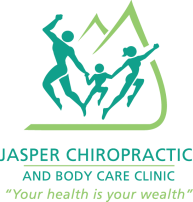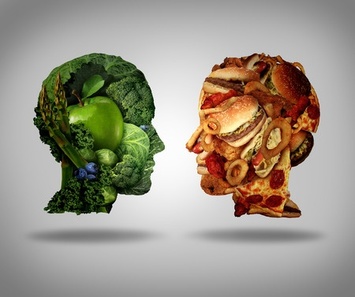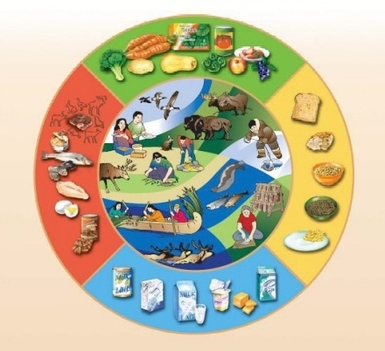Nutritional counselling - you are what you eat
|
You are what you eat is a saying that goes back to the mid 1800s. It’s not supposed to be taken literally. It simply means the food one eats has an effect on one's physical health and state of mind.
And it’s not only about what you eat. The way you eat, when you eat and even considering what your food has eaten are keys to a healthy eating regime. |
Too much of a good thing?
These days, in North America at least, we have access to a lot of good things. Plentiful food is one of them. Access to information is another. Trouble is, when you have a lot of choices, making the right ones can become more difficult.
Lets start with plentiful food
_Our grocery stores are packed with both healthy and unhealthy food choices. To add to the problem, our busy, modern lifestyles often leave little time to cook food from scratch, causing us to opt for the quick and easy overly processed foods.
Add the politics and business of food production into the mix and you run into GMOs, extra hormones, pesticides, too much sugar and other non-natural, potentially harmful hidden ingredients.
As a rule of thumb, shopping the outside aisles, reading ingredient lists carefully and being aware that the more packaging a food product has the less likely it will be a healthy choice are good guidelines. But it isn’t always that obvious.
Add the politics and business of food production into the mix and you run into GMOs, extra hormones, pesticides, too much sugar and other non-natural, potentially harmful hidden ingredients.
As a rule of thumb, shopping the outside aisles, reading ingredient lists carefully and being aware that the more packaging a food product has the less likely it will be a healthy choice are good guidelines. But it isn’t always that obvious.
Now let’s look at too much information
The internet has increased our access to information dramatically. Trouble is there’s as much bad info as good out there these days.
Should you go gluten-free, paleo, flexitarian, raw food, Eco-Atkins, …, the list of diets claiming health benefits is long and complex. Trouble is, for most of us, the science behind many nutritional claims is confusing at best and misleading at worst.
- Which sites are authentic?
- Which information is credible?
- Which diets are best?
Should you go gluten-free, paleo, flexitarian, raw food, Eco-Atkins, …, the list of diets claiming health benefits is long and complex. Trouble is, for most of us, the science behind many nutritional claims is confusing at best and misleading at worst.
Eating well can be complicated
|
Many of us grew up with the Canada food guide. It tells us how many servings of grain, fruits and vegetables, meats and proteins, and dairy products we need to consume daily to maintain optimal health. The question that begs to be asked is is it correct?
These days we have increasing numbers of people with:
How much of this is due to diet? While the nutritional scientists research and debate our modern food issues, the average person is left to negotiate a complex playing field of eating beliefs. |
Achieve a healthy eating lifestyle
Does your diet need to change? If you think it does, how do you find honest, reliable information about what to eat, how to eat, how much to eat, and when to eat? This is where Dr. Boyne, your Jasper chiropractor, comes in.
By combining his knowledge of how the human body functions, a background in science, access to the latest research and the ability to decipher fact from fiction, Dr. Boyne can help you find valid, reliable sources of information to help you set an eating lifestyle that is practical, achievable and the best for your optimal health.
By combining his knowledge of how the human body functions, a background in science, access to the latest research and the ability to decipher fact from fiction, Dr. Boyne can help you find valid, reliable sources of information to help you set an eating lifestyle that is practical, achievable and the best for your optimal health.
Keep on top of the latest news
If you would like to learn more about recent nutritional science and thinking, I recommend reading:
If you would like to keep on top of nutritional news:
- Grain Brain by David Perlmutter
- The Big Fat Surprise by Nina Teicholz
If you would like to keep on top of nutritional news:
- Like me on Facebook
- Read my blog
- Subscribe to my newsletter



